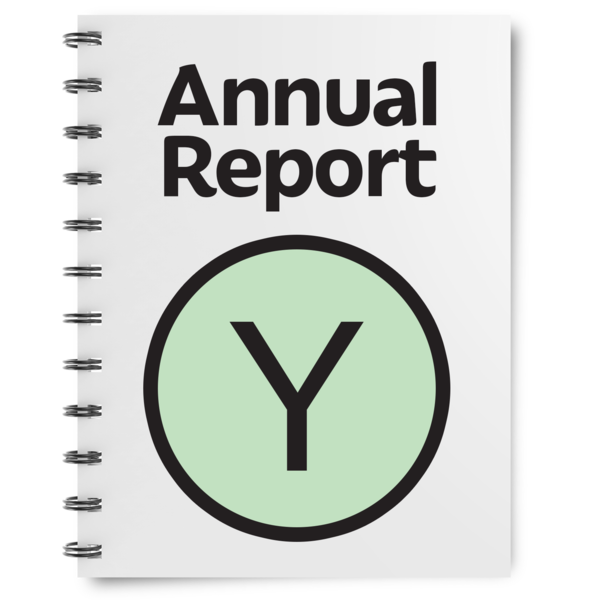NHS England data reveals that almost half (45.4%) of the deaths of people with a
learning disability
 A learning disability is to do with the way someone's brain works. It makes it harder for someone to learn, understand or do things.
notified to LeDeR were COVID-19-related, which Mencap analysis can reveal is higher than the proportion of COVID-19-related deaths in care homes at 31.1%.
A learning disability is to do with the way someone's brain works. It makes it harder for someone to learn, understand or do things.
notified to LeDeR were COVID-19-related, which Mencap analysis can reveal is higher than the proportion of COVID-19-related deaths in care homes at 31.1%.
There has been double the number of deaths recorded, around an additional 550 deaths of people with a learning disability, than expected for this time of year.
Mencap warns that people with a learning disability are “being forgotten in this crisis” and calls for urgent action to address “address any potentially discriminatory practice now.”
Edel Harris, Chief Executive of Mencap, said:
We are deeply troubled by the latest LeDeR data which shows that people with a learning disability are dying at double the rate than in previous years. Almost half of deaths of people with a learning disability notified to LeDeR were COVID-19-related – higher than the proportion of COVID-19-related deaths in care homes – yet people with a learning disability continue to be forgotten in this crisis.
The devastating impact of COVID-19 on our community
A community is the people and places in an area. is shocking, but sadly not surprising, when we have long been warning that the healthcare rights
Rights are the things everyone should be allowed to do like have a say, or go to school. of people with a learning disability are under threat like never before. Over the last few months we have repeatedly challenged discriminatory healthcare guidance
Guidance means being given clear instructions to be able to do something well. and practice and continue to support people with a learning disability and their families to access the treatment and support they have a right to. That’s why it is more important now than ever that the Government
The Government are the people who run the country. The Government decide how much tax people should pay and how things like the National Health Service (NHS) should work. and NHS urgently complete a timely, full and accurate assessment
An assessment is a way of finding out what help a person needs. When you have an assessment, you might have to go to a meeting or fill in a form. of COVID-19-related deaths of people with a learning disability across all settings so that steps can be taken to address any potentially discriminatory practice now. This is a matter of life or death and the lives of people with a learning disability matter equally."
Access NHS England data on COVID-19 deaths of patients with a learning disability notified to LeDeR.
For further information, contact Mencap’s media team on media@mencap.org.uk or 020 7696 5414 (including out of hours).
For advice and information on learning disability, including advice on coronavirus and healthcare, please contact Mencap’s freephone Learning Disability Helpline on 0808 808 1111 (9am-3pm, Monday-Friday) or email helpline@mencap.org.uk. Or visit Mencap’s
website
 A website is a page you can go to on the internet like Google or YouTube.
: www.mencap.org.uk.
A website is a page you can go to on the internet like Google or YouTube.
: www.mencap.org.uk.
Notes to editors
Data and sources
Between 16th March and 10th May 2020, 467 deaths of people with a learning disability who have either tested positive for COVID-19 or are considered to have COVID-19 were reported to the LeDeR programme. In total over this eight-week period, there 1029 deaths of people with a learning disability were notified to LeDeR.1 This means that 45.4% of the deaths of people with a learning disability during this period were from COVID-19.
There’s no directly comparable data for the general population. However, we do know:
Between w/e 20th March and w/e 1st May, there were 118,990 deaths registered in England and Wales. For 33,360 of these deaths, COVID-19 was mentioned on the death certificate. This equates to 28.0% of deaths over this seven-week period.2
Between 16th March and 1st May in care homes in England, there were 38,534 deaths of care home residents, of which 11,975 (or 31.1%) were involving COVID-19.3
Public Health England estimates that over 3,400 people with a learning disability die each year. Of the deaths reported to LeDeR, a similar proportion occur each month, with 7% occurring in both April and May in 2016-18.4 Therefore, for this time of year we would expect around 240 people with a learning disability to be dying each month – or around 480 over a two-month period. However, over the last 8 weeks we have seen 1029 deaths of people with a learning disability, or around an additional 550 deaths than we would have expected for this time of year.
Sources:
- NHS England (2020) Covid-19 deaths of patients with a learning disability notified to LeDeR. LeDeR COVID-19 weekly deaths. Dataset published 18th May. [accessed 18/05/2020]
- ONS (2020) Deaths registered weekly in England and Wales, provisional. 2020: up to week ending 1 May 2020. Dataset. [accessed 19/05/2020]
- ONS (2020) Deaths involving COVID-19 in the care sector, England and Wales. Dataset published 15th May. [accessed 19/05/2020]
- University of Bristol (2019) The Learning Disability Mortality Review (LeDeR) Programme
Annual report
 An annual report is a booklet which an
organisation
An annual report is a booklet which an
organisation
 An organisation are a group of people who work together.
writes every year. It tells you what they did that year.
2018. Available online.
An organisation are a group of people who work together.
writes every year. It tells you what they did that year.
2018. Available online.
About Mencap
There is approximately 1.5 million people with a learning disability in the UK. Mencap works to support people with a learning disability, their families and carers by fighting to change laws, improve services and access to
education
 Education is when you learn things. When you fill in a form to get a job, education means you write where you went to school, college or university.
,
employment
Education is when you learn things. When you fill in a form to get a job, education means you write where you went to school, college or university.
,
employment
 Employment means having a job.
and
leisure
Employment means having a job.
and
leisure
 Leisure is when you have time to do things you enjoy like playing sports or going to the pub.
facilities.
Leisure is when you have time to do things you enjoy like playing sports or going to the pub.
facilities.
Mencap supports thousands of people with a learning disability to live their lives the way they want and also campaigns to change laws, improve services and challenge negative attitudes towards people with a learning disability.
Treat Me Well campaign
In 2018, Mencap launched our Treat Me Well campaign to help save lives and to transform how the NHS treats people with a learning disability in hospital.
It is estimated 1,200 people with a learning disability die avoidably every year when timely access to good quality care could have saved them. While people with a learning disability die on average over two decades younger than people without a learning disability.
Over ten years after Mencap highlighted the issue (PDF) of people with a learning disability dying avoidably, Mencap’s Treat me well campaign is working with healthcare professionals and campaigners to change that.
Working alongside healthcare professionals and campaigners like Paula McGowan, mother to Oliver McGowan who died in hospital, the Treat me well campaign has succeeded in securing
mandatory
 Mandatory means that something must be done.
learning disability training for all health professionals which will be named in honour of Oliver and will be piloted shortly.
Mandatory means that something must be done.
learning disability training for all health professionals which will be named in honour of Oliver and will be piloted shortly.
Simple changes in hospital care can make a big difference – better communication, more time and clearer information.
But we know the treatment that people with a learning disability get in hospital is still not good enough in many parts of the country. This has to change.
Our Treat me well campaign is working with healthcare professionals and campaigners to make sure people with a learning disability are treated equally in hospital and get the healthcare they need and have a right to which can help to save lives.
What is a learning disability?
- A learning disability is a reduced intellectual ability which can cause problems with everyday tasks – for example shopping and cooking, or travelling to new places – which affects someone for their whole life;
- Learning disability is not a mental illness or a learning difficulty, such as
dyslexia
 Dyslexia is a learning difficulty. People who have dyslexia can find it hard to read, write and spell.
. Very often the term ‘learning difficulty’ is wrongly used interchangeably with ‘learning disability’;
Dyslexia is a learning difficulty. People who have dyslexia can find it hard to read, write and spell.
. Very often the term ‘learning difficulty’ is wrongly used interchangeably with ‘learning disability’; - People with a learning disability can take longer to learn new things and may need support to develop new skills, understand difficult information and engage with other people. The level of support someone needs is different with every individual. For example, someone with a severe learning disability might need much more support with daily tasks than someone with a mild learning disability.